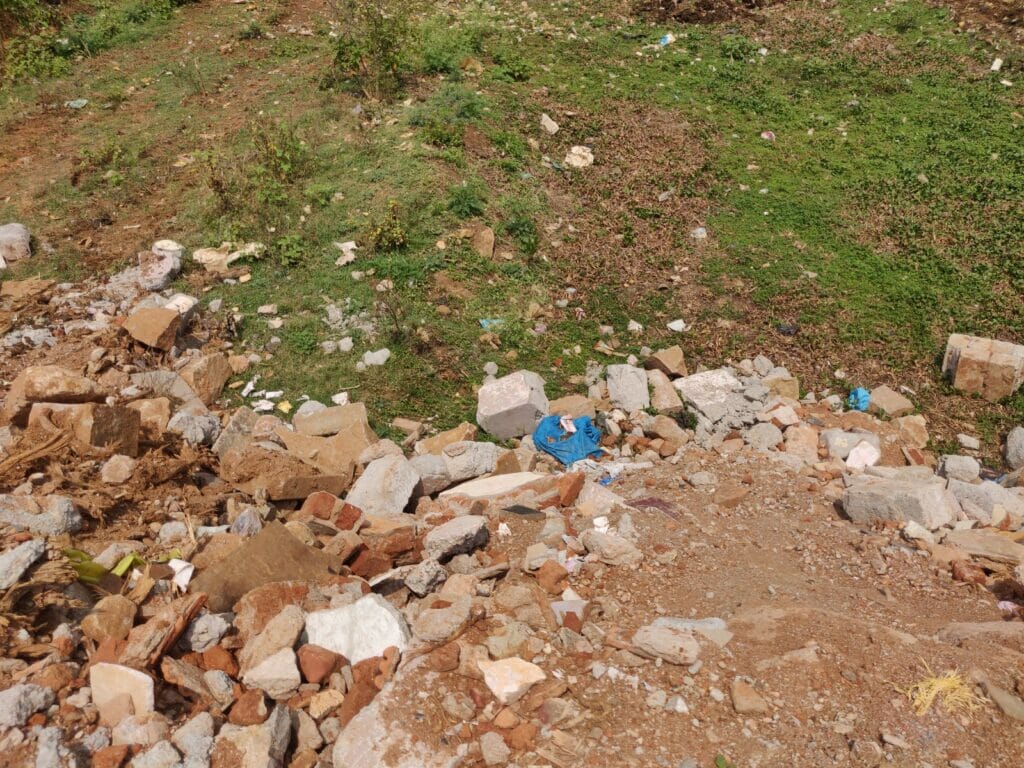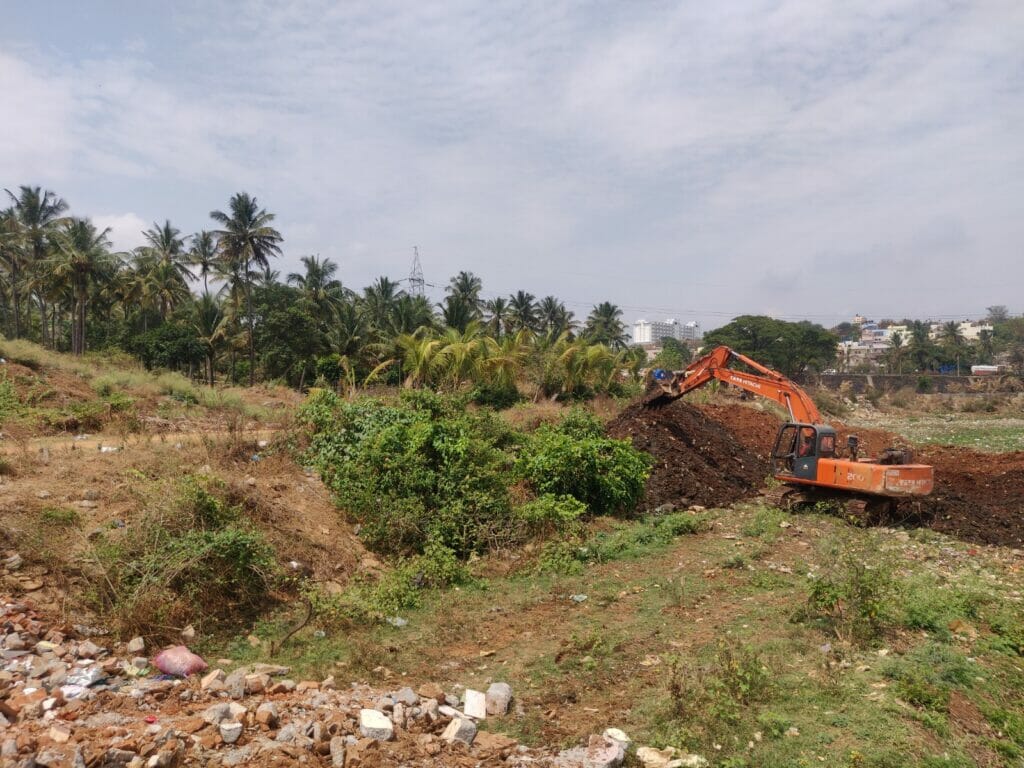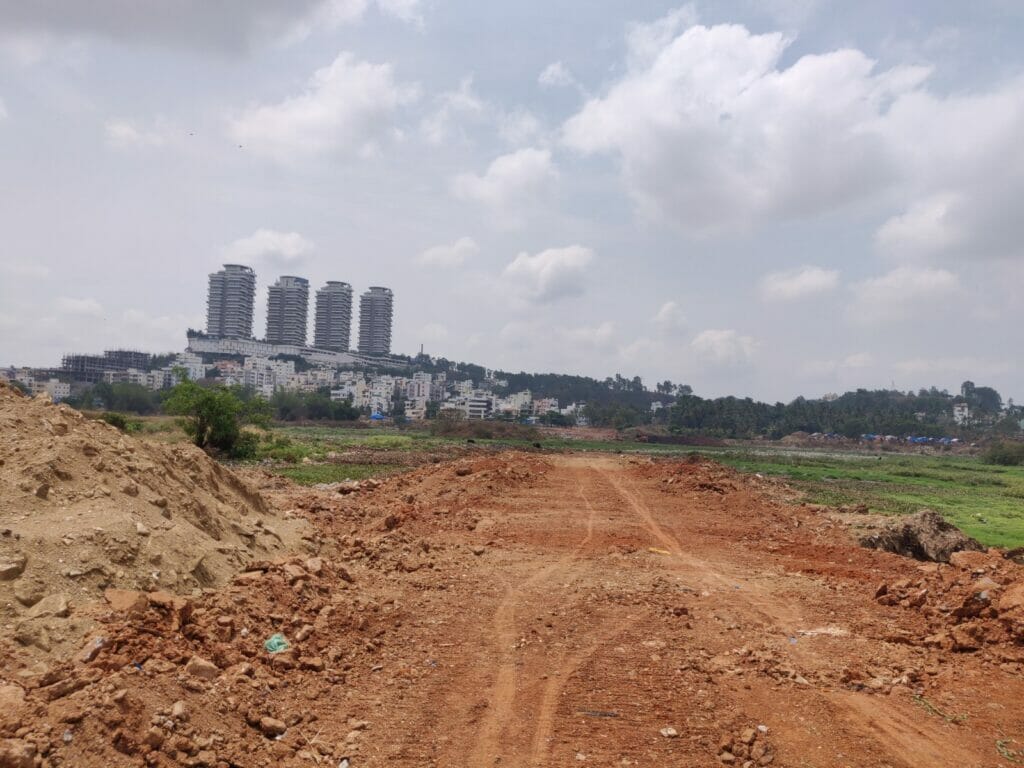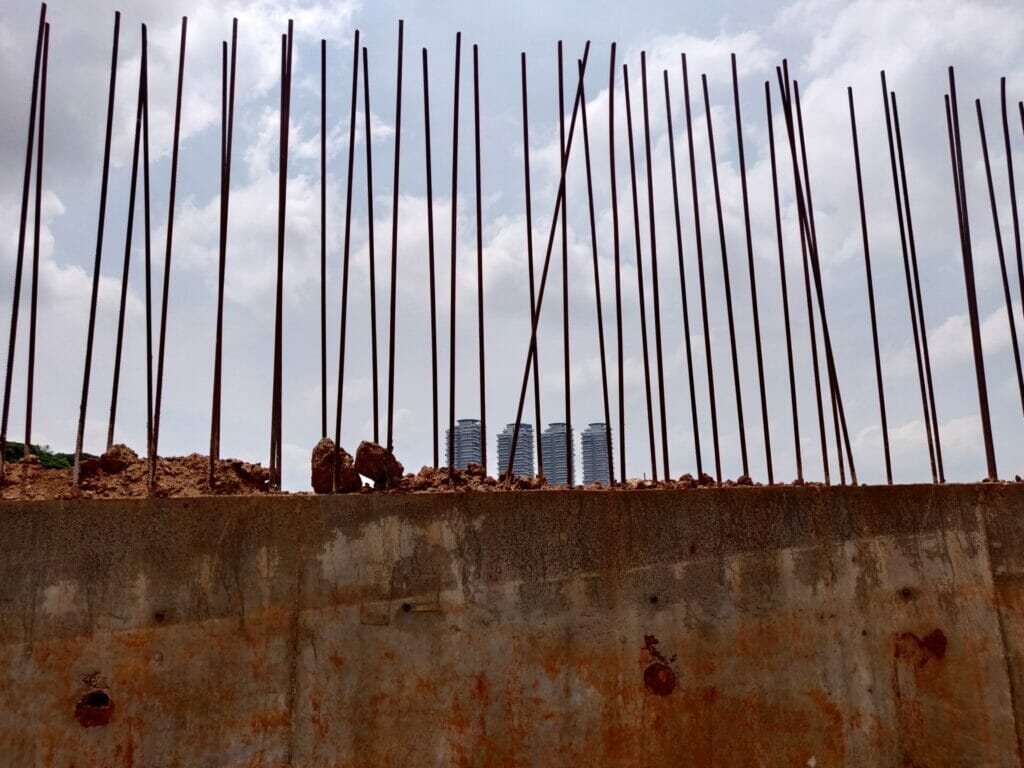The plan to build a 25-foot road right across Hosakerehalli Lake has been stopped. But the result is the vicinity lake being covered in heaps of mud, construction debris and the tire tracks of excavators.
Vehement protests by residents living in the lake’s vicinity forced the BBMP to stop the road construction. By then, however, they had already dumped mud into the lake to reclaim the land.
According to officials, the road was to facilitate heavy vehicles’ movement to carry out the lake’s de-silting. However, the protesting residents believe the road was to cater to the existing and new luxury apartments near the lake.
Read more: Beloved neighbourhood lake designated as a CA site, leased to a private trust
Located in the southern part of the city and bordering NICE Road, many people have been voicing their concern over the state of the lake. “If you come early in the morning, you can hear peacocks,” says Rachna Ravi Kiran, a resident, pointing to the islands on the lakebed, where various other bird species have been sighted. As a group of women graze their cattle, she adds that several livelihoods are dependent on the lake even in its current state.

“For years, this lake has been mired in politics,” says conservationist Joseph Hoover. Initially, the lake was the responsibility of the cash-strapped Karnataka Lake Conservation and Development Authority. Which passed on that authority to the Bruhat Bengaluru Mahanagara Palike (BBMP), which in turn tried and failed to hand the baton to the Bengaluru Development Authority (BDA). “The same work on the lake is being done over and over again but by different authorities, ” adds Joseph. The lake authority still lists the lake as in the hands of the BDA.
De-silting the lake
Listed at 59 acres, 26 guntas, the Hosakerehalli Lake, according to Joseph, has now shrunk to 52 acres after encroachments and the construction of walkways. The BDA carried out de-silting in 2017 as part of the rejuvenation process to bring the lake back to its old glory. At Rs 9.4 crore, the lake’s revival was part of the Authority’s initiative to revive 29 lakes to recharge the city’s groundwater levels.
Read more: Venkateshpura Lake: An ancient monument and grazing land at stake
The JCBs at the lake are currently carrying on the de-silting process, which according to Joseph, is not necessary, having already been done in 2017. “De-silting now will make the soil porous and will not hold the lake’s water, which will seep into the ground,” he says, adding that the authorities should have undertaken de-weeding instead.

Silting refers to the “slow accumulation of silt at the bottom of water bodies”, and de-silting is done to increase its storage capacity. De-silting, which entails digging or excavation of the lakebed, has been criticised for an “increase in percolation rate resulting in heavy seepage losses through the lake bed” as observed after massive desilting at Rajasthan’s Pushkar lake in 2009.
The India Water Portal report further notes that unplanned desilting can lead to large, isolated pits where the water is collected, will never reach the main storage and will only evaporate or seep.
Conservationists have slammed the handling of Hosekerahalli Lake to be arbitrary and unscientific.
Past work carried out
As per the 2021 Comptroller and Auditor General (CAG) report that audited the performance of management of stormwater drains in urban Bengaluru, “the drain passing along the border of the lake was remodelled and diverted to flow through the lake” thereby reducing its area.
Rs 4,500 lakh has been allocated for actionable plans for the Lake division, under the Amruth Nagarothana grants for the year 2022-23. However, no allocation has been made for the development or other works for Hosakerehalli Lake. Joseph also mentions there is no work order or tender issued for the work that is being done.

The state budget for 2020-21 announced a grant of Rs 999 crore for Solid Waste Management, under the Shubhra Bengaluru scheme. This entailed an allocation of Rs 417 crore for the comprehensive development of 25 lakes under the same scheme as well as Mukyamantri Nagarothana Yojane.
As per a 28 July 2021 work order accessed by Citizen Matters, there was a directive to divert solid waste and leachate and carry out a comprehensive development of the Hosakerehalli Lake, in the Rajarajeshwarinagar constituency, in accordance with this allocation. A tender was issued and Rs 55 crore was disbursed.
Who issued the order?
The residents also allege that no department is giving them information about the work being undertaken in the waterbody. Following FIRs being lodged against peaceful protesters against the Sankey flyover, Rachana also mentions that residents are wary of coming out in support.
Rajarajeshwarinagar MLA and Horticulture minister M. Munirathna was quoted saying that “silt over the last 100 years has collected there. With the monsoon round the corner and de-silting required, a good road was needed. The BBMP is taking up the work under the chief minister’s special grant.”
However, an official from the BBMP Lake department, who wished to remain anonymous, informed that the grant was disbursed under the Palike, and not as part of the CM Amruta Nagarothana. He also adds that all the rejuvenation work carried out on the lake three years ago, was funded by the 15th Finance Commission. Rs 42 crore were sanctioned in 2021 under this to rejuvenate “eight out of the 75 undeveloped lakes across the city.”

When asked if the work orders for the current work were issued, the official mentions that the ‘file’ for the same has been approved. “Rs.9 crore is approved for it. Prior to this Rs.3 crore was also approved for the lake under the BBMP Solid Waste Management department.” Construction of a retaining wall on one side of the lake is also underway. Vijay Haridas, Chief Engineer (Lakes) was unavailable for comment.
Crazy that BBMP online property tax payment syatem site is not responding/ opening despite trying to access it for last 3 days. With BBMP sitting in Bangalore, famously known for global IT prowess, it is not bothered to keep up to this image. Disguesting & shameful..